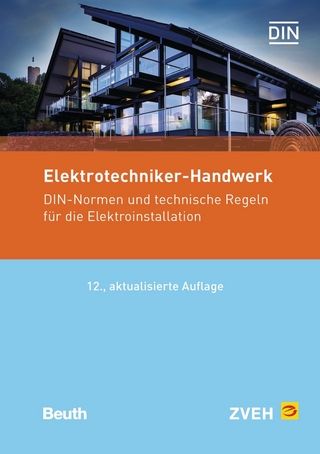
Investigation of Stress Distribution and Adhesion Effects of Strain Sensitive Epoxy/MWCNT Nanocomposite Films
Seiten
2019
Universitätsverlag Chemnitz
978-3-96100-080-7 (ISBN)
Universitätsverlag Chemnitz
978-3-96100-080-7 (ISBN)
- Titel ist leider vergriffen;
keine Neuauflage - Artikel merken
Carbon nanotubes (CNTs) have attracted a significant attention in a wide variety of applications due to their excellent physical and chemical properties. Specifically, CNTs reinforced polymer nanocomposites have considerable potential for the realization of highly sensitive, flexible, stable and durable strain sensors. However, the performance of polymer/CNTs strain sensors is influenced by many factors. Especially, the homogeneity of the CNTs distribution within the polymer matrix and the adhesion of nanocomposite film to the polymer substrate play a decisive role. Additionally, the electrical and piezoresistive responses of polymer/CNTs nanocomposites, as well as their response under variable environmental conditions need to be considered. The main aim of this thesis is to develop polymer/CNTs nanocomposites for strain sensing applications. Thereby, the focus is on the development of suitable, cost-effective and simple preparation methods of polymer/CNTs-based strain sensitive nanocomposites and on the selection of suitable flexible substrate. However, during deposition, residual stress can be formed at the interface between the film and the substrate, which leads to thin film failures. Therefore, an analytical model is developed to predict the stress distribution in the film aiming to define the suitable processing conditions for low residual stress formations. Furthermore, specific surface treatments are proposed in order to enhance the adhesion between the substrate and the thin film, which are investigated by contact angle measurement (CAM), X-rays spectroscopy (XPS)and atomic force microscopy (AFM). Nanocomposites with up to 1 wt.% multi-walled carbon nanotubes (MWCNTs) were prepared using a simple direct mixing method. The process parameters, such as sonication time and curing time, have been determined based on several characterization techniques. Dispersions qualities were examined using morphological and topography characterizations including scanning electron microscopy (SEM) and AFM. Additionally, DC measurements were performed on the polymer/CNTs nanocomposites in order to optimize the process parameters depending on the electrical conductivity and piezoresistivity of the nanocomposite. The impact of surface treatment on the strain sensing behavior was evaluated. Furthermore, electrical and piezoresistive responses under humidity and temperature effects were investigated. Analytical investigations show that the residual stresses can be minimized by using low deposition temperatures and by increasing the film thickness. Comparison of surface treatment techniques demonstrates that oxygen plasma cleaning improves adhesion at the interface by enlarging the surface area and enhancing the surface wettability and the surface polarity due to the introduction of functional groups. Morphological characterizations show the good homogeneity of MWCNTs and depict the importance of optimization of sonication time for the uniform filler distribution. Furthermore, AFM analysis show that the surface roughness is reduced as sonication time is increased due to the debundling of CNTs agglomeration. However, excessive sonication time can lead to higher roughness caused by breaking of CNTs, which get thereby the tendency to re-agglomerate. A low percolation threshold was achieved at a CNTs concentration of 0.3 wt.% which is significantly lower than the CNT concentrations reported in literature and demonstrating the quality of dispersion process adopted. Higher sensitivity is achieved at this CNTs concentration with approximately linear piezoresistive behavior of around R 2 = 0.9904. The novel strain sensitive nanocomposites show good stability at ambient conditions and good durability under mechanical cyclic test. In addition, it is found that the sensing behavior depends greatly on the surface roughness. A high stability and linearity with good sensitivity were observed for the sensor having low surface roughness.
| Erscheinungsdatum | 11.04.2019 |
|---|---|
| Reihe/Serie | Scientific Reports on Measurement and Sensor Technology ; 10 |
| Zusatzinfo | Illustrationen |
| Verlagsort | Chemnitz |
| Sprache | englisch |
| Maße | 148 x 210 mm |
| Gewicht | 275 g |
| Themenwelt | Technik ► Elektrotechnik / Energietechnik |
| Schlagworte | Adhäsion • Dehnungssensor • Eigenspannung • Haftung • piezoresistive Wirkung • polymer/CNTs Nanokomposit |
| ISBN-10 | 3-96100-080-8 / 3961000808 |
| ISBN-13 | 978-3-96100-080-7 / 9783961000807 |
| Zustand | Neuware |
| Haben Sie eine Frage zum Produkt? |
Mehr entdecken
aus dem Bereich
aus dem Bereich
DIN-Normen und Technische Regeln für die Elektroinstallation
Buch | Softcover (2023)
Beuth (Verlag)
86,00 €
Kolbenmaschinen - Strömungsmaschinen - Kraftwerke
Buch | Hardcover (2023)
Hanser (Verlag)
49,99 €


